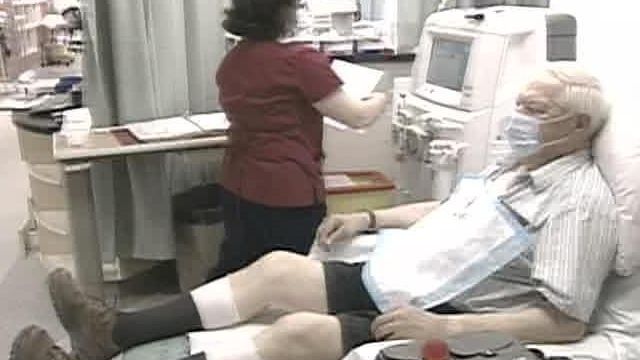Health Team
Study Looks at Night-Time Dialysis
For most people with kidney failure, kidney dialysis means several hours and many days in a clinic every week. But Catherine O'Meara is on a new type of dialysis - over-nights at home.
Posted — UpdatedFor most people with kidney failure, kidney dialysis means several hours and many days in a clinic every week. But Catherine O'Meara is on a new type of dialysis - over-nights at home.
“You have a lot more energy, and it frees up your whole day to be able to do whatever you want during the day,” O’Meara said.
A new study published in the Journal of the American Medical Association compared 25 patients receiving conventional in-center dialysis to 26 patients with night-time dialysis at home.
Those patients hooked themselves up to bedside machines and got 8 hours of dialysis five or six nights a week. In-center patients only got 12 hours of dialysis per week.
“This new type of dialysis reduces the negative effects of kidney disease on the heart,” said Dr. Bruce Culleton with the University of Calgary. “And in doing so, we believe this reduces the risk of future heart attack, heart failure and sudden death.”
Plus, kidney patients generally have to take many medications to control blood pressure and other blood problems. But those on night-time dialysis no longer needed to take so many medications.
Kidney patients also typically restrict their fluid intake, fruits and proteins, but not with night-time dialysis.
“All those restrictions disappear,” Culleton said.
O'Meara said she even gets better sleep with the machine than she used to.
“You don’t have the same bouts of nausea that you do with the other types of dialysis,” she said.
The night-time dialysis patients were trained for a month before they were set up with home machines. Nurses were on-call 24 hours a day during the six month study.
• Credits
Copyright 2024 by Capitol Broadcasting Company. All rights reserved. This material may not be published, broadcast, rewritten or redistributed.





